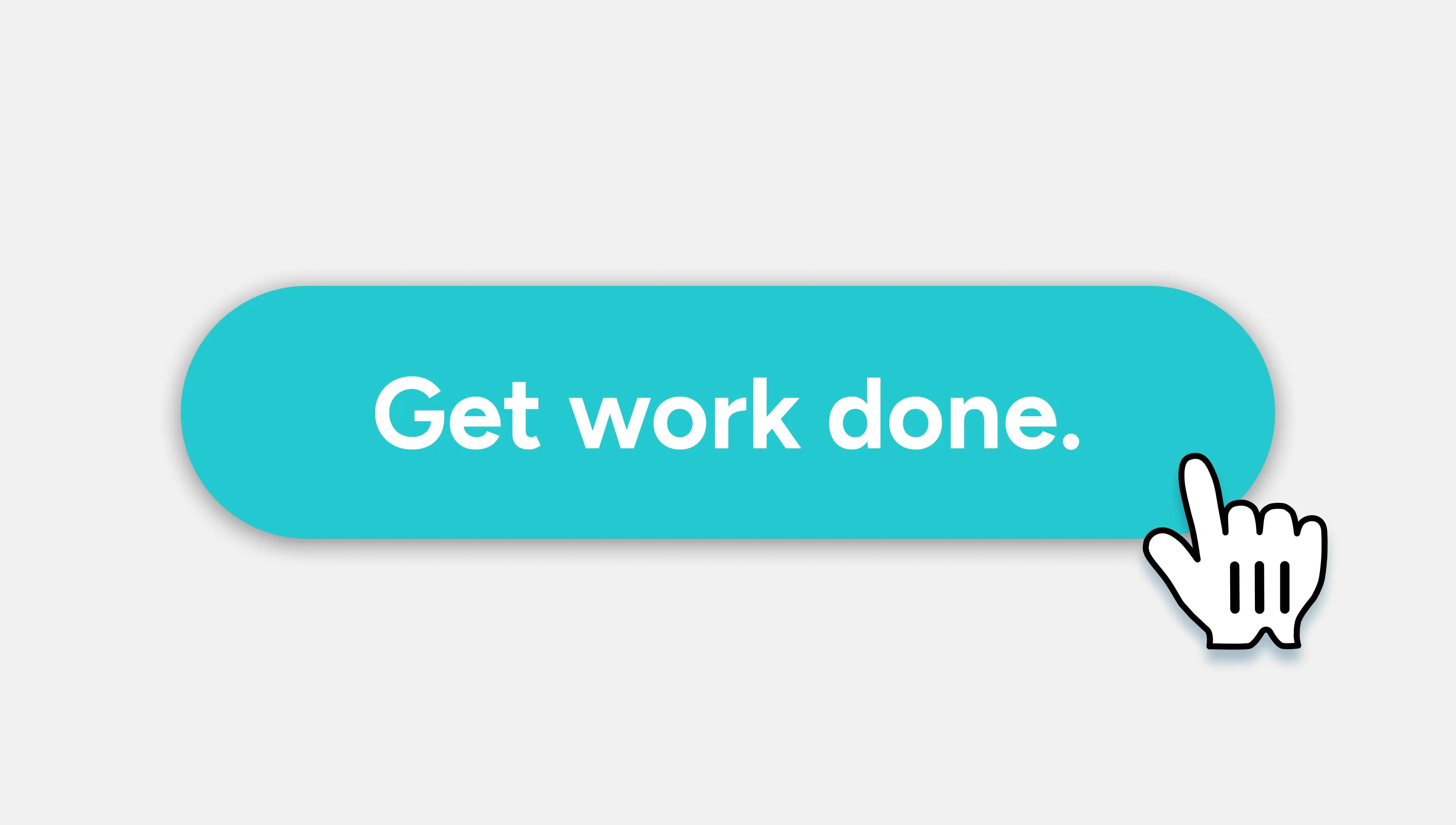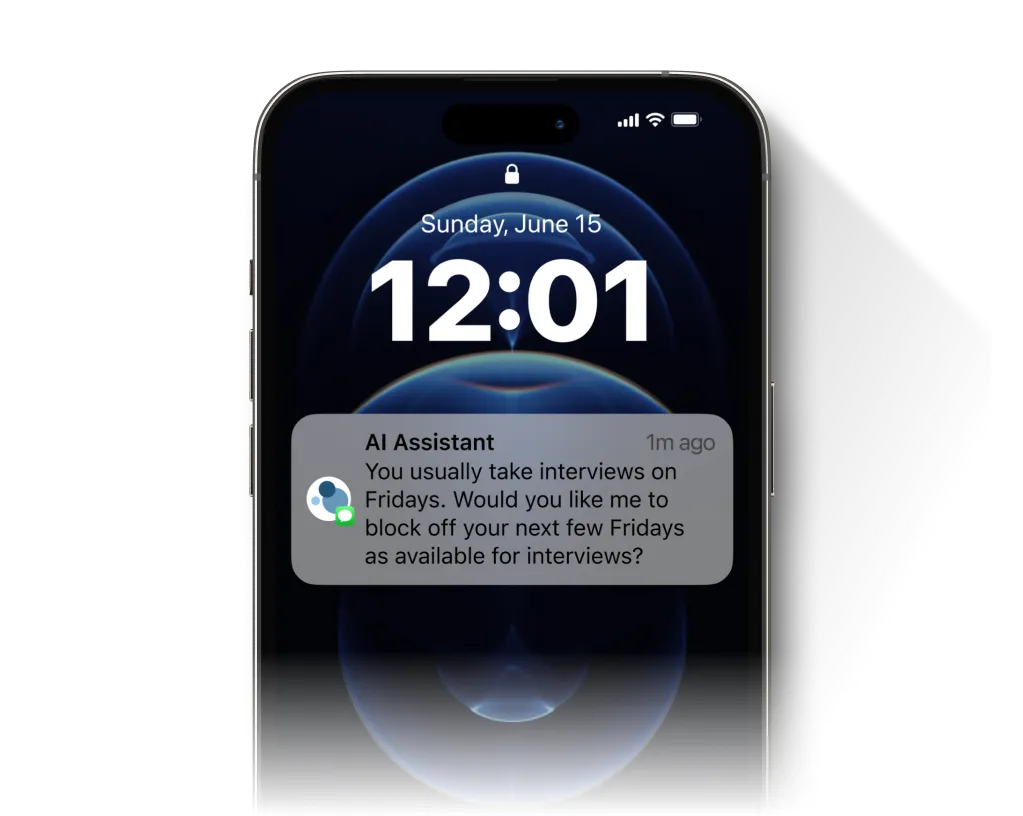AI agents.
They’re new, they’re shiny, they’re everywhere. They are, unequivocally, the Buzzword of the Moment.
I’ve worked in marketing for a long time. So I know how appealing it is to chase the Buzzword of the Moment. How tantalizing it is to be a part of the conversation. To be seen as a leader in your space and latch onto a new big word. But for the word agent, there’s just one small hitch: People can’t seem to agree on what it means.
I’ve seen countless definitions written up of what an agent is, what it does, how smart it is, and how it’s different from a co-pilot or an assistant. But with the capacity of AI technology changing weekly (literally), I think the speed of change has outpaced our understanding of it. All these definitions feel open-ended, speculative, and variable. If OpenAI isn’t considering ChatGPT an agent, it feels premature for any other software company to be releasing eight agents at a time.
That’s why we’ve taken a step back. Or, more appropriately, we aren’t jumping to join the fury of releases by sending tons of “agents” into the market. Because we’re not focused on a word with a moving target; we’re focused on the work that needs to be done in recruiting.
In 2016, Paradox began our journey built on the belief that everyone deserves an assistant to get hiring work done. Automating monotonous hiring work has always been at our core — and in 2025, surrounded by infinite change and new big words, that mission feels astutely on point.
Because great software isn’t of the moment. Great software solves real problems.
How do we view the work that needs to be done?
Let’s simplify work into three core buckets:
- Transactional work is the typical work you might imagine when you think of administration. Scheduling interviews, screening for qualifications, sending paperwork, answering questions, etc. This is the easiest stuff to automate; the things everyone wants off their plate. And good news! This work is already being automated, oftentimes without large language models ( you can check out the dozens of proof points here).
- Example: Blocking off open and busy times on your calendar, and using AI to schedule interviews based on that availability.
- Collaborative work will always involve AI, but also requires a human in the loop to actually make the decisions. In this type of work, the AI becomes a partner of sorts, inferring and suggesting optimizations or next steps based on data, patterns, behaviors, and prior knowledge.
- Example: AI suggesting: “You usually take interviews on Friday morning, but your calendar is currently open. Can I schedule your interview for that time? Also, would you like me to block off your next few Fridays as available for interviews?”
- Autonomous work is when we rely on AI to use data, context, patterns, and training to its best ability to make a decision and take action without any humans in the loop. This is the type of work that OpenAI would consider an agent to be able to do: true autonomous decision making without a human.
- Example: AI informing, “I sent a recorded interview for the candidate to take given the role type and reviewed the transcript for you; I progressed the candidate to offer.”
As I mentioned earlier, it’s industry standard (and smart) in recruiting to use automation and AI for transactional work. We are beginning to see more complex and collaborative work being done by assistants, where large language models are smarter and more prescriptive, but a human is still involved in key decisions. Autonomous work – especially in recruiting and hiring – is still largely future state.
So where do “agents” fit in?
As a textbook definition, AI agents perform autonomous work by deciding how to execute tasks. So when a user gives an AI agent a goal, they can think through different possible ways to achieve that goal, and then autonomously execute the steps necessary to complete it.
Where agents differ from other iterations of AI is in their ability to solve more abstract, ambiguous, and complex problems. See, if they run into a roadblock, they can reason around it and accomplish its goal anyways. Prior iterations of AI would be stumped without human input.
That’s the very cut-and-dried textbook definition. But if you went onto LinkedIn, or looked at some of the agents being released from tech startups today, you’d likely see a bit of a looser definition. That’s because “agent” was originally a computer science term, and we’ve turned it into a marketing term. So now, “agent” is being used as any piece of AI software that helps you get autonomous work, collaborative, and transactional work done. (And as I referenced earlier, Sam Altman of OpenAI doesn’t even consider ChatGPT an agent.)
You might be seeing the problem now: vendors have diluted, contorted, and abstracted the definition of agent to the point that it doesn’t really mean anything. Or it means everything. And who’s hurt most by that? The people who need software to solve strategic hiring problems.. You.
With so many interpretations and definitions, researching and vetting AI becomes 100 times harder. And you might end up paying top dollar for an “agent” that’s doing something that simple automation was able to do ten years ago.
So if you’re looking to add AI into your workflow, where do you even start?
Focus on the work that needs to be done.
That’s really it. The number one thing you should be doing is figuring out which steps of the hiring process your people bring the most value, and from there, you can use automation or AI to fill in the gaps. Because it might turn out that you need a potential solution to handle transactional work. Or you might discover you’re ready to outsource more complex work to AI, so you need software with an assistant (or agent) that uses a large language model.
When you focus on the work and not the word, you give yourself an advantage over all the marketers trying to oversell you something you don’t need (I can say this because I am a marketer). This sentiment always rings true, but it’s especially apparent in a landscape like today filled with murky definitions and constant change. Because when it comes to agents, the value of software does not equal the name people call it.
Which leaves just one question: If names don’t matter, why do we use assistant?
To us, assistants — and more broadly, assisting — evoke feelings of humanity. It’s something that inherently involves collaboration and partnership. Your friend assists you when you need to move furniture out of your house. But does your oven assist you in making your lunch?
Our assistant augments recruiters. They work as a team — and sometimes certain members of the team are relied on to do more work in certain areas at certain times. In 2016, we wanted to build a new type of software company that got work done for our clients. And that mindset hasn’t changed today, despite the last decade’s various Buzzwords of the Moment.
You might say agent. We say assistant. Potato, po-ta-to. But we’ll always stay focused on the work that needs to be done.












